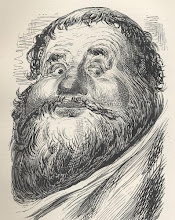But what is the law? And by whose authority does government enforce laws? Frederic Bastiat provides the answer in his essay from 1848 entitled The Law.
Existence, faculties, assimilation — in other words, personality, liberty, property — this is man.
It is of these three things that it may be said, apart from all demagogue subtlety, that they are anterior and superior to all human legislation.
It is not because men have made laws, that personality, liberty, and property exist. On the contrary, it is because personality, liberty, and property exist beforehand, that men make laws.
What, then, is law? As I have said elsewhere, it is the collective organization of the individual right to lawful defense.
Nature, or rather God, has bestowed upon every one of us the right to defend his person, his liberty, and his property, since these are the three constituent or preserving elements of life; elements, each of which is rendered complete by the others, and cannot be understood without them. For what are our faculties, but the extension of our personality? and what is property, but an extension of our faculties?
If every man has the right of defending, even by force, his person, his liberty, and his property, a number of men have the right to combine together, to extend, to organize a common force, to provide regularly for this defense. And what is property but an extension of our faculties?
Collective right, then, has its principle, its reason for existing, its lawfulness, in individual right; and the common force cannot rationally have any other end, or any other mission, than that of the isolated forces for which it is substituted. Thus, as the force of an individual cannot lawfully touch the person, the liberty, or the property of another individual — for the same reason, the common force cannot lawfully be used to destroy the person, the liberty, or the property of individuals or of classes.For this perversion of force would be, in one case as in the other, in contradiction to our premises. For who will dare to say that force has been given to us, not to defend our rights, but to annihilate the equal rights of our brethren? And if this be not true of every individual force, acting independently, how can it be true of the collective force, which is only the organized union of isolated forces?
Nothing, therefore, can be more evident than this: The law is the organization of the natural right of lawful defense; it is the substitution of collective for individual forces, for the purpose of acting in the sphere in which they have a right to act, of doing what they have a right to do, to secure persons, liberties, and properties, and to maintain each in its right, so as to cause justice to reign over all.












3 comments:
Okay man so what I think you're saying is that if it is wrong for some guys to come in my house and steal my rug then just because its the government or some IRS guys from Washington or state dudes from Sacramento or whatever doesn't make it okay because, hey, theft is theft even if you dress it up nice with laws and such. My property is mine and no one has a right to take it without consent.
Am I right?
But what if I voted for those dudes who passed that rug tax law thing I was theoreterizing about?
You can give them your rug if you want them to have it I suppose...but they don't have a right to take it, whether you voted for them or not.
I would advise you to be careful about letting government tax-feeders into your abode though. They will definitely take your weed.
Whoa
Post a Comment